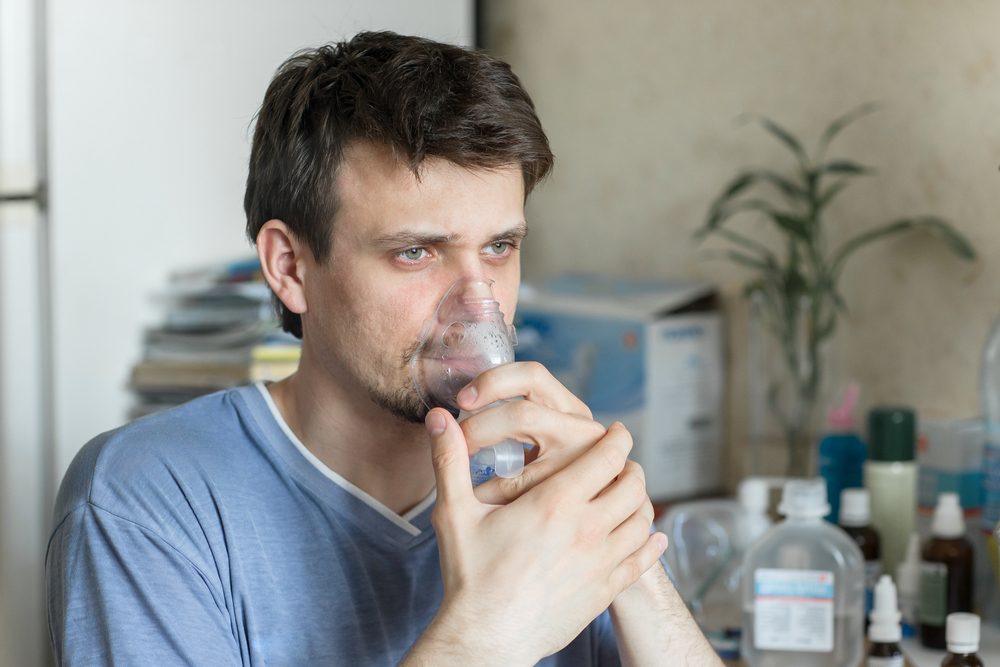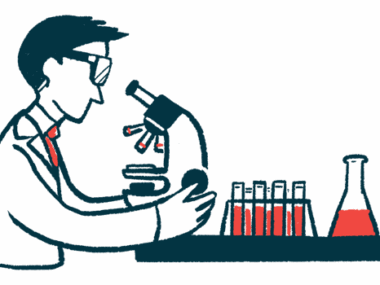#NACFC2016 – Potential Treatments for Biofilm Infections and Intestinal Inflammation Show Promise in Early Studies
Written by |

Promising results of preclinical studies evaluating the effectiveness of SYGN113 to treat bacterial biofilms in the lungs of patients with cystic fibrosis (CF), and of SYGN303 to treat the gastrointestinal consequences of the disease, were presented at the North American Cystic Fibrosis Conference (NACFC) now taking place in Orlando.
Bacterial biofilms are aggregates of bacteria that adhere to and settle on the lungs’ surface in CF patients, aided by the abnormal accumulation of mucus typical of the disease. Biofilms are difficult for antibiotics to penetrate, so that treatment of lung infections is less likely to succeed.
The drugs, developed by Synedgen, are modified polysaccharide molecules. SYGN113 enhances mucus clearance and biofilm decomposition by rendering bacteria more susceptible to antibiotics, while SYGN303 mimics the barrier function of the polysaccharide layer on the surface of the intestine, reducing the inflammatory response to damage and promoting healing of the gastrointestinal surface.
Two poster presentations on Thursday, by Stacy Townsend, PhD, vice-president of Research at Synedgen, included information on studies evaluating SYGN113 as an inhaled treatment to improve lung function in patients with CF. (NACFC 2016 opened on Thursday, Oct. 27, and closes on Saturday, Oct. 29.)
The first poster, “PAAG Removes Biofilms and Potentiates Antibacterial Activity Against Burkholderia cepacia Complex Clinical Isolates,” showed that combining SYGN113 with the antibiotic compounds tobramycin and meropenem led to increased biofilm degradation and antibacterial activity in Burkholderia cepacia bacteria that was isolated from CF patients.
The second poster, “PAAG15A Removes Biofilms Against Nontuberculosis Mycobacteria Clinical Isolates,” showed that once-daily treatment with SYGN113 for 10 minutes significantly reduced biofilms of the nontuberculosis mycobacteria (NTM) Mycobacterium abscessus isolated from CF patients. Also, one hour of treatment significantly reduced pre-formed NTM biofilms in a dose-dependent manner.
“The anti-biofilm properties exhibited by our glycopolymer-based molecules in these preclinical studies expose biofilm-protected bacteria to antibiotics,” Shenda Baker, PhD, president and chief operating officer of Synedgen, said in a new release. “Enabling antibiotics to reach and effectively neutralize their targets is a critical mechanism to combat infection and antibiotic resistance, which are serious and life-threatening complications for cystic fibrosis patients.”
Baker added: “The data presented at NACFC continue to suggest that Synedgen’s therapeutic candidate, SYGN113, has the potential to become a novel addition to the armamentarium for treating pulmonary exacerbations and bacterial infections in cystic fibrosis. We look forward to initiating a Phase 1 clinical trial of SYGN113 in CF patients in 2017.”
The third poster from Synedgen was about the development of SYGN303 as a potential treatment for distal intestinal obstructive syndrome (DIOS), a condition that arises from blockage and inflammation in the gastrointestinal tract due to the accumulation of mucus, and for which there are currently no targeted or approved therapies.
The poster, “CFTR-/- Rat with Distal Intestinal Obstructive Syndrome (DIOS),” was presented by Steven Rowe from the University of Alabama on Thursday. Results showed that administration of SYGN303 for 21 days to rats carrying a mutation in the CFTR gene (the gene affected in CF) prevented the development of DIOS, and improved the animals’ survival and growth.
“SYGN303 is designed to reduce mucofecal obstruction and reduce inflammatory responses in the mucosal lining of the gastrointestinal tract. These data support our novel approach to treat this serious complication of CF,” Baker said in a separate press release. “The results of Dr. Rowe’s study provide clear rationale for the continued development of SYGN303 as a potential treatment for DIOS in patients with cystic fibrosis — a complication with no targeted or approved therapeutic options.”






